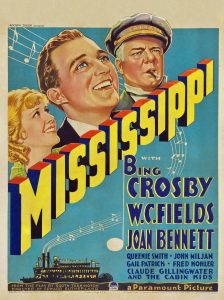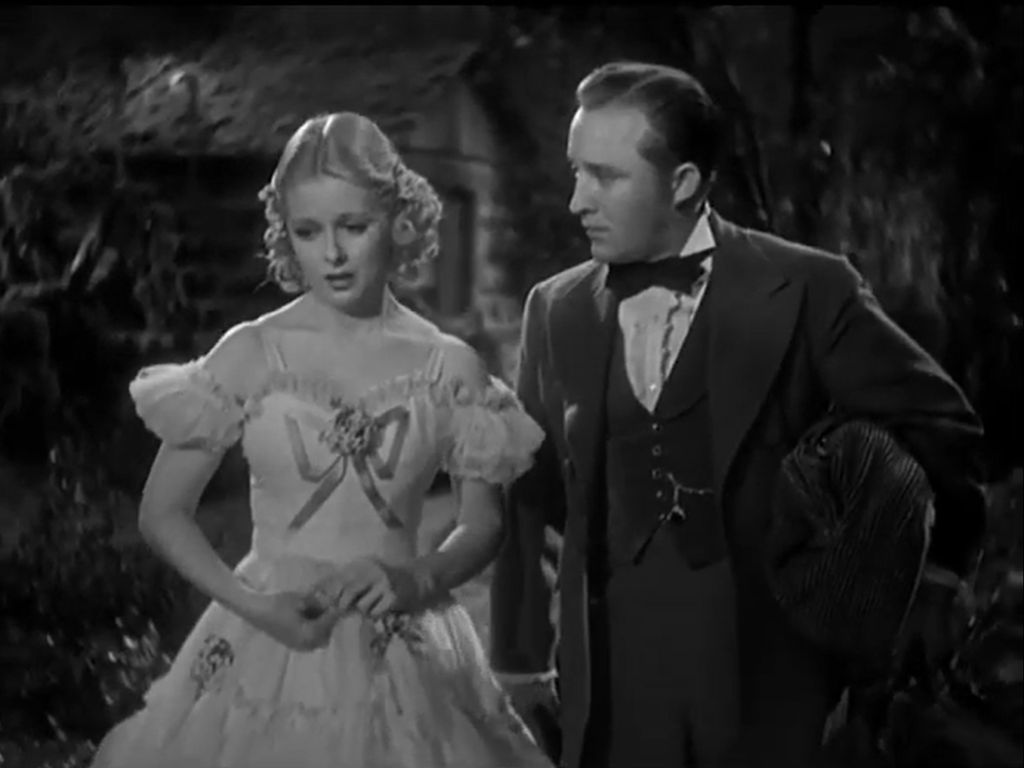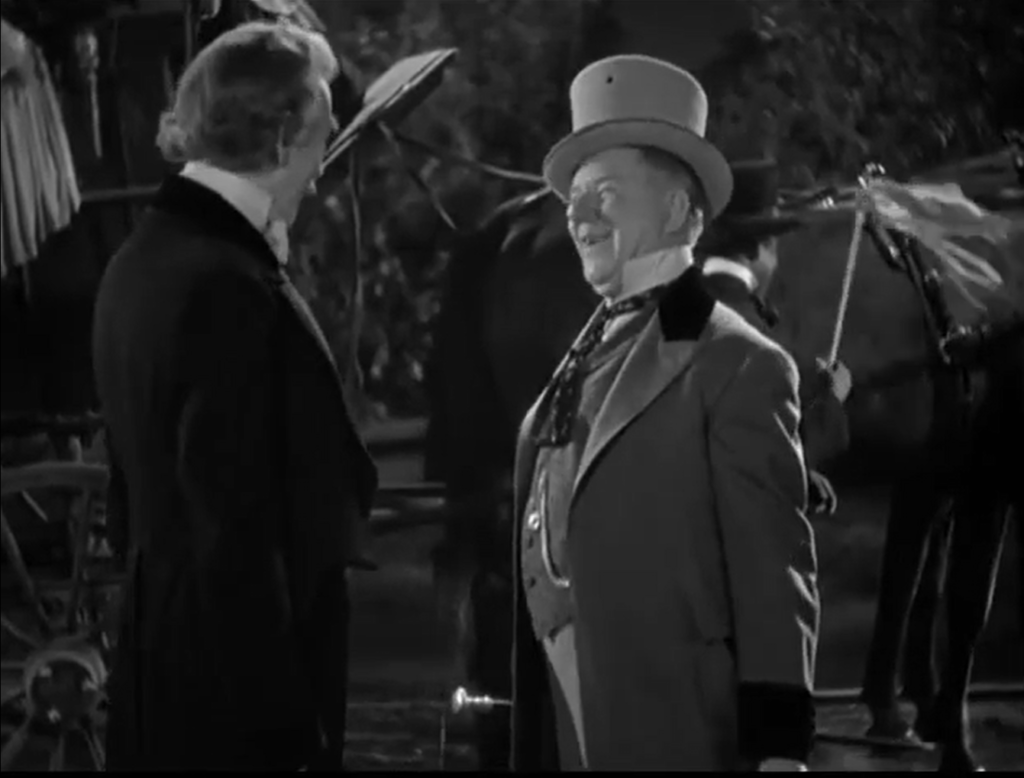“There’s no excuse for a man not fighting!”
|

Synopsis:
A pacifist (Bing Crosby) engaged to a southern belle (Gail Patrick) disappoints both Patrick and her father (Claude Gillingwater) by refusing to fight a duel with Patrick’s prior suitor (John Miljan), who she eventually marries. After accepting a job as a crooner on a performance ship run by Commodore Jackson (W.C. Fields), Crosby reunites with Patrick’s younger sister (Joan Bennett), who has not-so-secretly loved Crosby for many years — but will Crosby’s new identity as “The Singing Killer” (earned after he accidentally shoots a man in a fight) spoil their romance?
|
|
Genres, Themes, Actors, and Directors:
- Bing Crosby Films
- Deep South
- Joan Bennett Films
- Mistaken or Hidden Identities
- Musicals
- Singers
- W.C. Fields Films
Review:
Bing Crosby co-starred with W.C. Fields for the first and only time in this Rodgers & Hart musical — an adaptation of Booth Tarkington’s novel Magnolia — which showcases Crosby singing a number of ditties, W.C. Fields doing his comedic shtick, and offensive depictions of post-Civil War African-Americans (including a group of singing children referred to as the “Pickaninnies”). Blonde Bennett’s pining for Crosby in earlier scenes (as he’s busy romancing her beautiful but inflexible sister through music) quickly gets tiresome, and we simply find ourselves waiting for the moment when they will finally have their chance to realize they’re destined for one another.

The mistaken identity plot is pretty silly, too, making this one only must-see for either Crosby or Fields completists.
Redeeming Qualities and Moments:
- A few humorous moments with Fields

Must See?
No. Listed as a film with Historical Importance in the back of Peary’s book, though I’m not sure why.
Links:
|



One thought on “Mississippi (1935)”
First viewing. Not must-see.
This film appears to be an attempt by Paramount to cash-in on the stage success of ‘Show Boat’ (which opened in 1927 but James Whale’s film version was being made around the same time and would be released the following year). It does pale by comparison.
However, the second half is better than the first – once Crosby understands the ‘code of honor’ among men and learns the value of first commanding an opponent to ‘SIT DOWN!’ (thus putting him in a subservient position).
At that point, the performances of Crosby (who normally does nothing for me personally) and Fields (who is mostly respecting the plot for a change) do much in keeping the latter half of the film interesting.
Still – even if it’s not dull – there’s not a whole lot that makes the film all that memorable. Fields gets a rare fun moment in the final scene, in which he is frightened by a row of wooden Indian statues passing by an open window and believes them to be real.